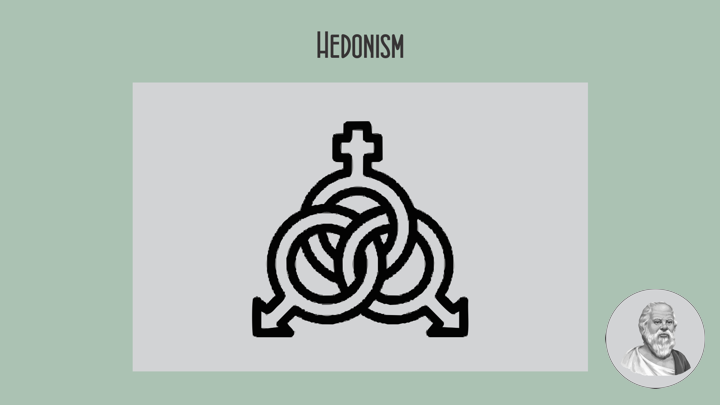——
#LucPaquin #Spirituality #Philosophy #Hedonism #WorkLifeBalance
——
——
Hedonism
Hedonism, in ethics, a general term for all theories of conduct in which the criterion is pleasure of one kind or another. The word is derived from the Greek Hedone “Pleasure”, from Hedys “Sweet or Pleasant”. Hedonistic theories of conduct have been held from the earliest times. They have been regularly misrepresented by their critics because of a simple misconception, namely, the assumption that the pleasure upheld by the Hedonist is necessarily purely physical in its origins. This assumption is in most cases a complete perversion of the truth. Practically all Hedonists recognize the existence of pleasures derived from fame and reputation, from friendship and sympathy, from knowledge and art. Most have urged that physical pleasures are not only ephemeral in themselves but also involve, either as prior conditions or as consequences, such pains as to discount any greater intensity that they may have while they last.
The earliest and most extreme form of Hedonism is that of the Cyrenaics as stated by Aristippus, who argued that the goal of a good life should be the sentient pleasure of the moment. Since, as Protagoras maintained, knowledge is solely of momentary sensations, it is useless to try to calculate future pleasures and to balance pains against them. The true art of life is to crowd as much enjoyment as possible into each moment.
Pleasure plays a central role in all forms of Hedonism; it refers to experience that feels good and involves the enjoyment of something. Pleasure contrasts with pain or suffering, which are forms of feeling bad. Discussions within hedonism usually focus more on pleasure, but as its negative side, pain is equally implied in these discussions. Both pleasure and pain come in degrees and have been thought of as a dimension going from positive degrees through a neutral point to negative degrees. The term “Happiness” is often used in this tradition to refer to the balance of pleasure over pain.
In everyday language, the term “Pleasure” is primarily associated with sensory pleasures like the enjoyment of food or sex. But in its most general sense, it includes all types of positive or pleasant experiences including the enjoyment of sports, seeing a beautiful sunset or engaging in an intellectually satisfying activity. Theories of pleasure try to determine what all these pleasurable experiences have in common, and what is essential to them. They are traditionally divided into quality theories and attitude theories. Quality theories hold that pleasure is a quality of pleasurable experiences themselves while attitude theories state that pleasure is in some sense external to the experience since it depends on the subject’s attitude to the experience.
The plausibility of the various versions of hedonism is affected by how the nature of pleasure is conceived. An important appeal of most forms of Hedonism is that they are able to give a simple and unified account of their respective fields. But this is only possible if pleasure itself is a unified phenomenon. This has been put into question, mainly due to the wide variety of pleasure experiences which seem to have no one shared feature in common. One way open to quality theorists to respond to this objection is by pointing out that the Hedonic tone of pleasure-experiences is not a regular quality but a higher-order quality. Attitude theories have an easier way to reply to this argument since they may hold that it is the same type of attitude, often identified with desire, that is common to all pleasurable experiences.
The Paradox of Hedonism refers to the practical difficulties encountered in the pursuit of pleasure. For the Hedonist, constant pleasure-seeking may not yield the most actual pleasure or happiness in the long term, when consciously pursuing pleasure interferes with experiencing it. Psychological Hedonism gives a straightforward theory explaining the totality of human behavior. It has intuitive plausibility because pleasure-seeking behavior is a common phenomenon, and may indeed dominate human conduct at times; however, the generalization of psychological Hedonism as an explanation for all behavior is highly controversial.
Luc Paquin

Leave a Reply